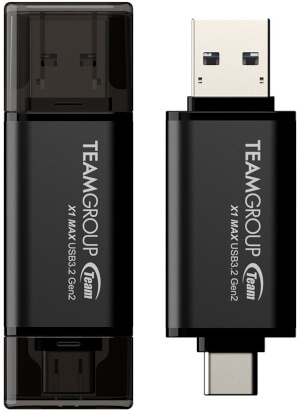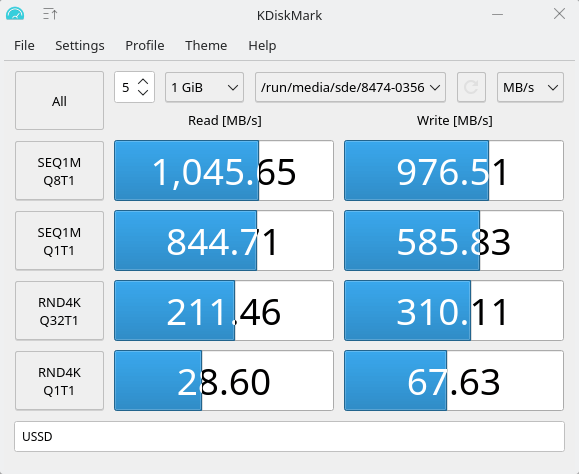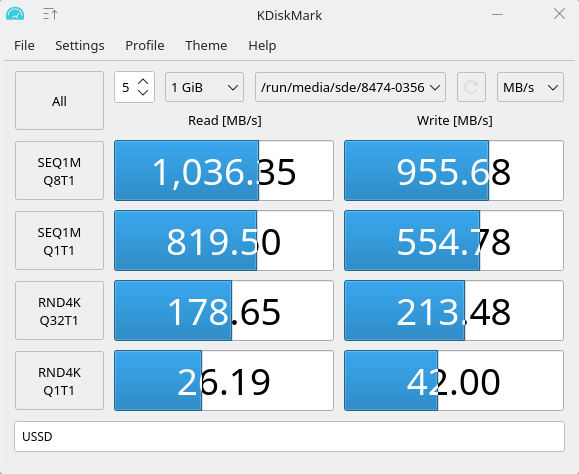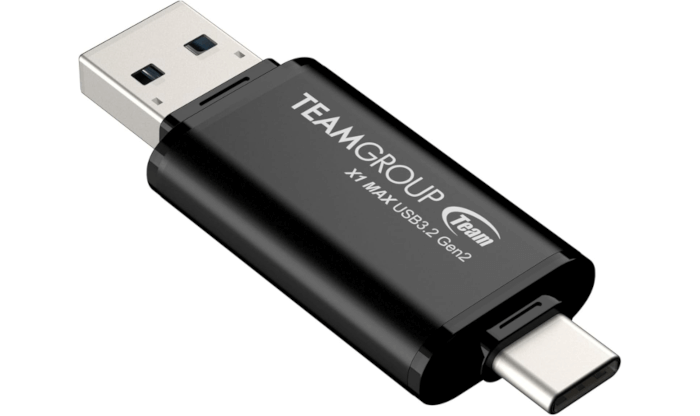TEAMGROUP is a well-known Taiwanese hardware manufacturer and an emerging brand in the European consumer SSD market. Besides a wide range of SSDs, their hardware range includes an consummate array of DDR5 RAM, as well as memory cards, USB drives and peripherals. They provided a sample for the TEAMGROUP X1 MAX 512GB USB 3.2 Gen 2 Flash Drive for review and testing. It retails for $41.99. This is not an affiliate link.
The X1 MAX flash drive is available in 128GB, 256GB, 512GB, and 1TB capacities. It’s capable of fast read and write speeds (up to 1000 MB/s sequential read, 900 MB/s sequential write for the 512GB and 1TB versions). All of the X1 Max flash drives are backed by a five year warranty.
The drive works with Linux 2.6 or higher and other operating systems.
Design
 The first thing you’ll notice is that the flash drive supports both Type-A and Type-C ports.
The first thing you’ll notice is that the flash drive supports both Type-A and Type-C ports.
So you’ll not need to carry a cable whatever device you connect the drive to.
The drive is billed as “dark, stylish, functional use”. I like the design. It’s simple, the drive is very lightweight and compact. Its finished with an black aluminum alloy material.
I’m not the biggest fan of blade covers as they are prone to being mislaid, but they do offer good protection.
A retractable dual design you sometimes see on flash drives can also have its own problems.
Specifications
| TEAMGROUP X1 MAX Flash Drive | |
|---|---|
| Brand | TEAMGROUP |
| Model: | X1 Max |
| Form Factor: | Flash Drive |
| Capacity: | 512GB (128GB, 256GB, and 1TB capacities are also available) |
| Interface | USB 3.2 Gen 2 using Type-C or Type-A |
| Dimensions | 63(L) x 20(W) x 8(H)mm |
| Weight | 12g |
| Warranty: | 5 years |
| Price: | $38.99 |
Benchmarks
Benchmarks such as the open source KDiskMark utility help provide an insight into the performance of the direct-attached storage device. The results translate to the instantaneous performance numbers that consumers can expect for specific workloads, but make no reference to changes in behaviour when the unit is subject to long-term conditioning and/or thermal throttling.
KDiskMark uses four different access traces for reads and writes over a configurable region size.
I tested the flash drive over both Type-C and Type-A. For Type-A I tested with USB 3.2 Gen 2 Type-A.
Here are the results with Type-C.

And the benchmarks with Type-A.

The benchmarks are impressive beating the advertised 1,000 MB/s read and 900 MB/s write speeds (over both Type-C and Type-A). The flash drive maintains the high write speeds, but slows down with very large files (greater than 40GB) which is common.
For Type-A, performance is very good although it’s noticeably slower for the RND4K benchmarks.
Let’s see how the flash drive compares to other hardware.
Next page: Page 2 – Comparison Benchmarks
Pages in this article:
Page 1 – Introduction, Specifications and Benchmarks
Page 2 – Comparison Benchmarks
Page 3 – Summary

